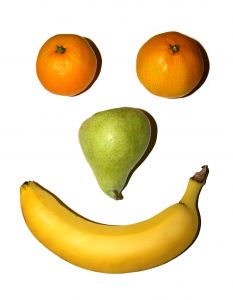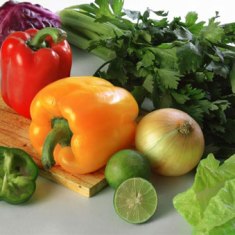January 5th, 2011 by DrCharles in Better Health Network, Health Tips, Opinion, Research
2 Comments »

 A patient reading a copy of Prevention in the waiting room brought to my attention an interesting article entitled “7 Foods That Should Never Cross Your Plate.” I would have to agree that these seven commonly eaten foods should be avoided, so I’ll rehash them here, along with three more of my own choosing to flesh out a New Year’s 7 + 3 = Top 10 list.
A patient reading a copy of Prevention in the waiting room brought to my attention an interesting article entitled “7 Foods That Should Never Cross Your Plate.” I would have to agree that these seven commonly eaten foods should be avoided, so I’ll rehash them here, along with three more of my own choosing to flesh out a New Year’s 7 + 3 = Top 10 list.
The lead into the article implores the reader to recognize that “clean eating means choosing fruits, vegetables, and meats that are raised, grown, and sold with minimal processing.” Michael Pollan, the regarded author of The Omnivores Dilemma and In Defense of Food, puts it even more simply: “Eat food. Not too much. Mostly plants.”
So here are the food items to avoid, in no particular order:
1) Canned Tomatoes – The resin that lines the corners of tin cans usually contains bisphenol-A, a compound found to produce estrogenic effects in the body, linked to heart disease, diabetes, obesity, and possibly neuro-developmental problems like ADHD. Tomatoes get picked on because their acidity increases the leaching of BPA into the food. Perhaps citrus foods and other acidic canned goods would have the same concerns.
2) Corn-Fed Beef – If you’ve ever watched the documentary Food Inc., you’ve probably been disgusted and appalled by the supply chain that brings meat to our tables and fast food restaurants. Bloated cows are being fed corn and soybeans, heavily subsidized crops controlled by Monsanto, to the detriment of their health. Eating their meat passes on the lower nutritional value to us, and perpetuates an immoral system of CAFO’s and cow concentration camps. Grass-fed beef, especially free range, is higher in vitamins, minerals, and has a healthier fat profile (better omega-3 to omega-6 fatty acid ratios). Bison tends to be grass fed, free-range, and of a superior nutritional quality. Eat Wild can help you find local farms that raise animals properly and often need your support. Think of the higher cost returning dividends on your health and as a charitable support of a good cause. Read more »
*This blog post was originally published at The Examining Room of Dr. Charles*
November 17th, 2010 by DrRob in Better Health Network, Humor, True Stories
No Comments »

I did a little “self care” earlier this week. I did it by not caring for myself. I went to the doctor.
I was sitting in the waiting area for my appointment and saw the mother of one of my patients. “Why are you here?” she asked. “I have a doctor’s appointment,” I replied. She got a curious look on her face, asking: “Don’t you doctors just take care of yourselves? I thought that was what doctors did.”
We do take care of ourselves. In fact, we do it far more often than we should. Being your own doctor allows for a lot of denial. When you spend your day advocating healthy lifestyles after you had trouble finding pants that would fit in the morning, denial is necessary. “Do as I say, not as I do.”
I realize that this is hypocrisy — that is why I was at the doctor on Monday. My patients have noticed my expanding waistline, commenting on it more than I would wish. Certainly my pants get in the way of denial as well, not forgiving the fact that I have been under a whole lot of stress. Pants don’t accept excuses.
So I found myself in the unfamiliar experience of being the patient. Instead of closing my mind and emotions to my own body, I had to frankly assess what I was doing to it. Standing on the scale was as frank of an assessment as I would ever want. Read more »
*This blog post was originally published at Musings of a Distractible Mind*
July 31st, 2010 by Toni Brayer, M.D. in Better Health Network, Health Tips, Research
No Comments »

 The Environmental Working Group (EWG) is a non-profit focused on public health. We know that the long-term consequences of eating chemicals from pesticides used on our foods is damaging to our health.
The Environmental Working Group (EWG) is a non-profit focused on public health. We know that the long-term consequences of eating chemicals from pesticides used on our foods is damaging to our health.
The EWG analyzed data from the FDA and found that people who eat five fruits and vegetables a day from the “Dirty Dozen” are eating 10 pesticides a day. We want people to eat more fruits and vegetables, but NOT to ingest more chemicals. Rinsing reduces but does not eliminate pesticides. So what’s the answer? Rinse completely and buy the “Dirty Dozen” foods organic whenever possible. Read more »
*This blog post was originally published at EverythingHealth*
May 2nd, 2010 by BarbaraFicarraRN in Better Health Network, Health Tips, Opinion
No Comments »

 Raise your hand if you want to eat healthy.
Raise your hand if you want to eat healthy.
Healthy eating isn’t just good for cinching your waistline — it’s great for overall health.
From glowing skin, to heart health, to maintaining healthy teeth and bones; eating foods packed with certain nutrients can also protect your immune system and fight infections. It can boost your libido and decrease that lousy (LDL) cholesterol and boost your good (HDL) cholesterol.
Healthy eating shouldn’t be a struggle. It’s easy to get sucked into the marketing trap when you’re food shopping and you encounter all those in-store specials. Sometimes, those specials are just bad for your health. Read more »
*This blog post was originally published at Health in 30*
March 30th, 2010 by Toni Brayer, M.D. in Better Health Network, Health Policy, Health Tips, Opinion, True Stories
No Comments »

 I watched a good documentary called “Food, Inc.” It was nominated for an Academy Award. The promo says “you’ll never look at dinner the same way” and they’re right. Since I’m a fan of Michael Pollan and have read “Fast Food Nation,” I was already a healthy-food fan, but seeing how agriculture and farming has changed over the last 40 years was still a shocker.
I watched a good documentary called “Food, Inc.” It was nominated for an Academy Award. The promo says “you’ll never look at dinner the same way” and they’re right. Since I’m a fan of Michael Pollan and have read “Fast Food Nation,” I was already a healthy-food fan, but seeing how agriculture and farming has changed over the last 40 years was still a shocker.
There’s no doubt that high-calorie, sugar-laden processed foods are contributing to serious health issues in America. And 10 billion animals are raised on factory farms under inhumane conditions.
So when I went to the grocery store today, I made a conscious choice to ask if Safeway had any grass-fed beef for a healthy stir fry I was making for dinner. The answer was “No,” so I journeyed over to Whole Foods where I bought a pound of grass-fed sirloin. The cost was a whopping $16.43.
I have to ask myself why grass-fed beef should be so much more expensive than corn-fed beef. There’s no way the average family could afford to eat the way we should. The impact on our environment and our health is suffering terribly because of these perverted economics.
*This blog post was originally published at EverythingHealth*
 A patient reading a copy of Prevention in the waiting room brought to my attention an interesting article entitled “7 Foods That Should Never Cross Your Plate.” I would have to agree that these seven commonly eaten foods should be avoided, so I’ll rehash them here, along with three more of my own choosing to flesh out a New Year’s 7 + 3 = Top 10 list.
A patient reading a copy of Prevention in the waiting room brought to my attention an interesting article entitled “7 Foods That Should Never Cross Your Plate.” I would have to agree that these seven commonly eaten foods should be avoided, so I’ll rehash them here, along with three more of my own choosing to flesh out a New Year’s 7 + 3 = Top 10 list.




 The
The 
 Raise your hand if you want to eat healthy.
Raise your hand if you want to eat healthy.








